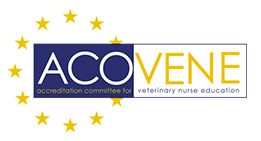- Have any questions?
- +44 020 7222 2001

It Is Rabbit Awareness Week!
26 Giugno 2024
ACOVENE accreditation online training day 23 July 2024
16 Luglio 2024World Zoonoses Day is observed annually on July 6th to raise awareness about zoonotic diseases—diseases that can be transmitted from animals to humans. On this year’s World Zoonoses Day, we have the opportunity to speak with Matthew Rendle RVN, a seasoned veterinary nurse with extensive experience in managing patients that may carry zoonotic diseases. Throughout his career, Matthew has handled a wide variety of patients and clinical cases. He emphasizes the importance of recognizing potential zoonotic diseases and understanding the appropriate care required for these cases.
'Veterinary nurses often perform many essential roles in controlling zoonotic diseases in various clinical settings. During veterinary nursing training, one of our day one skills is understanding the importance of recognizing a zoonotic risk. This often starts with taking a comprehensive history from the owners. It is especially important to find out if the patient was imported from abroad or has travelled with the owners to other countries, as either of these situations can increase the risk of the patient carrying a zoonotic disease and may change how the patient is nursed. For example, in the UK, Leishmaniasis is fairly common in imported dogs and can be directly transmitted to humans. Therefore, it is crucial that veterinary nurses are aware of these types of diseases and how to prevent their spread.'
'Veterinary nurses are often the team members who write the protocols and are responsible for setting up an isolation area for the care of a patient with a zoonotic disease. This involves more than just wearing PPE such as gloves and aprons; it also requires balancing the need to maintain an acceptable level of welfare for the patient while preventing any spread to team members and other patients. Having managed a primate import that required the animal to be held in a rabies quarantine area for six months, I have had first-hand experience of how challenging this balance can be.'
'Here are my top tips for staying safe while working with animals with zoonotic potential:
1. Wash your hands with hot soapy water before and after any contact with the patient, in addition to wearing gloves if they are available.
2. Avoid being a vector or creating fomites. Do not touch your face, glasses, or door handles with hands or gloves that have also touched the patient. It’s beneficial to work in a blame-free environment where everyone agrees to inform each other if a team member breaches biosecurity in this manner.
3. Do not eat or drink in clinical areas. Although it’s challenging in a busy practice, this is important to reduce the risk of ingesting a zoonotic pathogen.
4. Conduct clinical audits. In my opinion, this is essential. Audits allow you to see what worked and what didn’t, enabling us to improve our practices. Ideally, these audits should be carried out after the treatment of each zoonotic patient has ended.'




